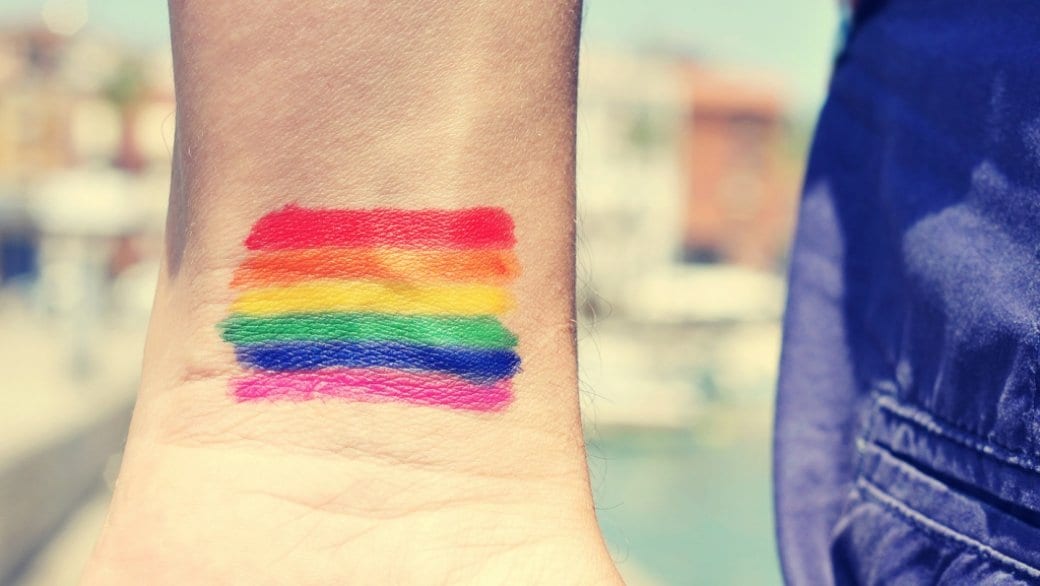Coming out in 2016 has been shaped by the external factors around us, digitally from social media and video-sharing, social issues like immigration, the refugee crisis and race relations, and also by tragedy, such as the Orlando nightclub shooting in June 2016. Not only are there new ways to come out, but the very definition has changed; coming out no longer just means identifying with a letter in the LGBT acronym — for many it means celebrating what’s beyond the four letters. Whether it’s sexuality or other identities you assume in different areas of your life such as race, religion, (dis)ability, ethnicity, age, nationality, or an occupation or hobby — this year, celebrate coming out as all of yourself.
For National Coming Out Day (which we’ve extended to Canada), we’ve put together a list of 13 of the best coming out stories on the web today, from reported pieces to personal essays. Each story presents a different way of coming out, whether it’s differences in coming out between queer and trans Millennials and Baby Boomers, coming out as a lesbian and alcoholic, or being trans in the digital age — regardless, coming out in 2016 presents just as many new opportunities to be out and proud as it does new challenges.
Think pieces and reporting on coming out today
“Generation LGBTQIA” by Michael Schulman, The New York Times
“If the gay-rights movement today seems to revolve around same-sex marriage, this generation is seeking something more radical: an upending of gender roles beyond the binary of male/female. The core question isn’t whom they love, but who they are — that is, identity as distinct from sexual orientation.”
“The Year We Imagined The End Of The Closet” by Shannon Keating, Buzzfeed
“From celebrities discussing their identities on Snapchat, to a new generation embracing a ‘no labels’ approach to sexuality, coming out looks different in 2016 than ever before. But could it really no longer be necessary?”
“Transitioning in the Digital Age” by Jessica Lachenal, Model View Culture
“What I didn’t expect, however, was having to take on the monumental task of going back across my entire online identity and having to filter every post, every tweet, every photo that was from a life that was no longer mine. I didn’t want people searching my name, and coming across old photos of me pre-transition, or seeing other people refer to me by a name that I no longer identify with. More than that, I didn’t want to be outed to anybody who thought to do a quick romp through my Facebook profile.”
“Coming out all over again: why the first gay rights generation faces similar challenges in old age”, By Wency Leung, The Globe and Mail
“The generation that led the gay liberation movement now faces the prospect of moving into retirement communities, nursing homes, and long-term care facilities alongside more elderly occupants who were raised with the notion that homosexuality was a disease, and a criminal act.”
“Two spirits, one struggle: The front lines of being First Nations and gay” by Kelsey Klassen, Westender
“The son of a prominent Squamish Nation councillor and artist, Jacobs says he had the support of his family as he pursued traditionally female crafts such as sewing and beadwork, and experimented with flamboyant fashion after puberty hit. Throughout the rest of his 4,000-person reserve, however, homophobia — a product of the historical trauma of colonization and residential schools – was rampant.”
“‘What will people say?’: Indian Americans balance family with LGBT identity” by Arun Venugopal, The Guardian
“For a number of younger LGBT South Asians, the challenge lies in openly forging an individual path while maintaining ties to large, culturally conservative families and the communities in which they’re embedded.”
“After the Orlando nightclub shooting, the changed lives of gay Latinos” by Daniel Wegner, The New York Times
“The reality for gay Latinos is more complicated. After the shooting at Pulse, Isabel Sousa, the Colombian-born sociologist, went to Orlando to advise a new group called QLatinx, meant to help queer Latinos transform what he called the city’s ‘rainbow-flag-waving’ into more permanent kinds of progress.”
Personal Essays
“Pursuing Happiness As A Trans Woman Of Color” by Kai Cheng Thom, Buzzfeed
“When you are a young trans girl of color, you grow up knowing that you are marked for violence and death. Your classmates make jokes about hunting down and shooting people like you. It seems like almost every news item, book, movie, and TV show featuring a trans person ends with that person being rejected by their family, sexually assaulted, dying, or all three. Even the sympathetic portrayals seem to make us out to be victims to be pitied rather than heroes to root for. No one teaches you that you can be happy. No one shows you a vision of the future that you can see yourself in.”
“Why I came out as non-binary to Barack Obama” by Maria Munir, The Telegraph
“It was a direct conversation with the most powerful man on the planet and I could ask him anything. So I asked him why my existence is not recognised in this country, and braced myself.”
“Coming out as Bi when you’re Muslim and married” by Zahra Noorbakhsh, Bitch
“I’d wrestle with the answer for eight years before saying ‘I do’ and adding ‘till death do us part, in sickness and in health, no matter who else turns us on.’ I pass as straight because of my marriage, so why stir the pot by telling my family about my internal feelings now?”
“My coming out: The lingering intersex taboo” by Janik Bastien-Charlebois, The Montreal Gazette
“While I came out as lesbian slamming the closet doors behind me, coming out as intersex and sharing parts of our stories is a much more delicate endeavour. We are symbolically undressing in front of people who, with no bearings to understand how we are — as opposed to a medically normative female or male body — fumble around with their imagination trying to build a mental picture of us.”
“When A Lesbian Gets Sober” by Courtney Gillette, Buzzfeed
“In my therapist’s office, after I explained that queer women had to drink, she smiled. She was a stylish woman with a sleeve of tattoos and a sense of humor. She told me that she was sober, and so was her girlfriend.”
“These Black LGBT People Reveal What Happened When They Came Out” By Ben Henry, Buzzfeed
“I was a combination of educated professional, hoodlum, rapper, introvert, go-getter homosexual, and a range of other characteristics that aren’t supposed to coexist in one person. People like clear categories; they only see gay OR black, not gay AND black.”


 Why you can trust Xtra
Why you can trust Xtra


